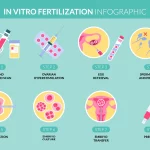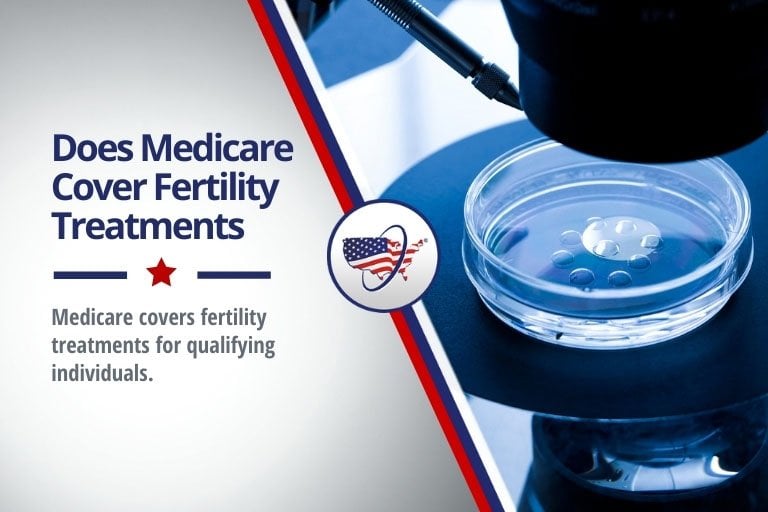
What IVF Stands For: A Deep Dive into In Vitro Fertilization
April 25, 2025
What Does Menopur Do in IVF?
April 25, 2025What to Do After IVF Transfer: Your Ultimate Guide to Boosting Success
So, you’ve just had your IVF embryo transfer. Congratulations on making it this far! It’s a huge step, and now you’re probably wondering what comes next. The two weeks after your transfer—often called the “two-week wait”—can feel like an eternity. You might be asking yourself: What can I do to help this work? How should I take care of myself? What’s normal, and what’s not? Don’t worry—I’ve got you covered. This guide is packed with practical tips, science-backed advice, and a few fresh ideas you won’t find everywhere else. Let’s dive in and make this time as smooth and hopeful as possible.
The Basics: Why the Post-Transfer Period Matters
After your embryo transfer, the goal is simple: give that tiny embryo the best shot at implanting in your uterus and growing into a healthy pregnancy. This window is critical because implantation usually happens 6-10 days after the transfer, depending on whether it was a fresh or frozen embryo. Your body needs to be a welcoming home, and your actions can play a role in setting the stage.
Think of it like planting a seed. You wouldn’t just toss it into the soil and walk away—you’d water it, make sure it gets sunlight, and protect it from harsh weather. The same goes for your embryo. Small, intentional choices can make a difference, even if the outcome isn’t entirely in your control. Let’s break it down step by step.
Rest, But Don’t Overdo It
You might have heard that you need to stay in bed for days after your transfer. That’s an old myth! Research shows that strict bed rest doesn’t improve IVF success rates—and it might even stress you out more, which isn’t great for your body.
A 2013 study from the Journal of Assisted Reproduction and Genetics found no difference in pregnancy rates between women who rested for 24 hours versus those who resumed normal activities right away. So, what should you do?
- Take it easy for the first 48 hours. Lie down when you can, but don’t feel glued to the couch. Gentle movement—like a short walk to the kitchen—keeps your blood flowing without overtaxing your system.
- Avoid heavy lifting or intense workouts. Skip the gym and anything that makes you sweat buckets. Your ovaries might still be tender from the egg retrieval, and you don’t want to jostle things too much.
- Listen to your body. If you’re tired, rest. If you feel okay, a light stroll or some stretching can lift your mood.
The key is balance. You’re not training for a marathon, but you’re not a fragile glass figurine either. Find that sweet spot.
Fuel Your Body with the Right Foods
What you eat after your transfer can support your body’s efforts to welcome that embryo. No, there’s no magic food that guarantees success (sorry, pineapple fans!), but a smart diet can help your hormones, reduce inflammation, and keep you feeling strong.
What to Eat
Focus on a mix of nutrients that nurture your reproductive system:
- Protein-rich foods: Think lean chicken, eggs, tofu, or lentils. Protein helps repair tissues and supports cell growth—crucial during implantation.
- Healthy fats: Avocados, nuts, and olive oil are your friends. Omega-3s, found in salmon or chia seeds, may reduce inflammation and improve uterine blood flow, according to a 2021 study in Fertility and Sterility.
- Whole grains: Brown rice, quinoa, or oats give you steady energy without spiking your blood sugar.
- Fruits and veggies: Load up on colorful options like berries, spinach, and sweet potatoes. They’re packed with antioxidants that protect your cells.
What to Avoid
Some foods can throw off your balance or stress your system:
- Processed junk: Skip the chips and sugary snacks. They can increase inflammation, which isn’t ideal right now.
- Too much caffeine: One cup of coffee is fine, but don’t overdo it. A 2022 study from Human Reproduction linked high caffeine intake (over 300 mg daily) to lower implantation rates.
- Raw or risky foods: No sushi or unpasteurized cheese. You’re not pregnant yet, but it’s smart to play it safe.
A Sample Day on Your Plate
Here’s a simple plan to get you started:
- Breakfast: Greek yogurt with berries and a sprinkle of chia seeds.
- Lunch: Grilled chicken salad with spinach, avocado, and a whole-grain roll.
- Snack: A handful of almonds and an apple.
- Dinner: Baked salmon with quinoa and steamed broccoli.
Tweak it to your taste, but keep it balanced. Your body will thank you.
Hydration: The Unsung Hero
Staying hydrated might sound basic, but it’s a game-changer after your transfer. Water helps your blood circulate, delivering oxygen and nutrients to your uterus. It also flushes out toxins and keeps your energy up.
- Aim for 8-10 cups a day. Carry a water bottle to make it easy.
- Add flavor if you’re bored. Toss in some cucumber slices or a splash of lemon—nothing acidic like pineapple juice, though, which can irritate your stomach.
- Watch for signs you’re slipping. Dark urine or feeling sluggish? Up your intake.
A little trick: sip warm water or herbal tea (like chamomile) at night. It’s soothing and keeps you hydrated without overloading your bladder before bed.
Medications: Stick to the Plan
Your doctor probably gave you a list of meds—progesterone, maybe some vitamins or steroids. These aren’t optional! Progesterone, especially, thickens your uterine lining to help the embryo stick.
- Set reminders. Use your phone or a pill organizer so you don’t miss a dose.
- Ask questions. Not sure why you’re taking something? Call your clinic. Understanding the “why” makes it easier to stay on track.
- Don’t stop early. Even if you feel fine, keep going until your doctor says otherwise.
Missing doses can mess with your hormone levels, and that’s the last thing you want right now. Treat this like a sacred routine.
Stress Less, Thrive More
The two-week wait is an emotional rollercoaster—hope one minute, worry the next. Stress won’t ruin your chances, but keeping it in check can help your body stay in a good place. A 2020 study in Reproductive Biomedicine Online found that women with lower stress levels during IVF had slightly higher pregnancy rates.
Ways to Chill Out
- Breathe deeply. Try this: inhale for 4 seconds, hold for 4, exhale for 4. Repeat 5 times. It’s simple but works wonders.
- Watch something funny. A silly movie or your favorite sitcom can lift your spirits.
- Talk it out. Chat with a friend, partner, or even a counselor if you’re feeling overwhelmed.
What to Skip
- Googling symptoms. It’s tempting, but it’ll just freak you out. Every twinge doesn’t mean success or failure.
- Overplanning. Don’t start decorating a nursery yet—focus on the moment.
Here’s a quick interactive idea: Mood Check-In. Grab a notebook. Each day, jot down one thing that made you smile and one thing you’re grateful for. It’s a tiny habit that keeps your mind positive.
What About Symptoms? Decoding Your Body
You might be hyper-aware of every little feeling right now. Cramping, spotting, tiredness—are they good signs or bad? The truth is, symptoms don’t always tell the full story.
What’s Normal
- Mild cramping: This can happen as your uterus adjusts or if implantation is starting. It should feel like light period cramps, not intense pain.
- Spotting: A little light pink or brown spotting around 7-10 days post-transfer could be implantation bleeding. A 2019 study in Obstetrics & Gynecology found it’s common in early pregnancy.
- Fatigue: Hormones like progesterone can make you sleepy. It’s your body working hard!
When to Call Your Doctor
- Heavy bleeding: Soaking a pad in an hour? That’s not normal—get help ASAP.
- Severe pain: Sharp, constant pain could signal an issue like an ectopic pregnancy.
- Fever: Anything over 100.4°F needs a check-in with your clinic.
Don’t panic over every sensation, but trust your gut if something feels off. You know your body best.
The Heat Factor: A Fresh Take
Here’s something you might not see in every guide: heat can affect implantation more than you think. Your core body temperature matters, and overheating could stress your system when it’s trying to nurture that embryo.
- Skip hot baths and saunas. A 2023 study from Environmental Health Perspectives suggests high heat exposure in early pregnancy might increase miscarriage risk. No need to risk it now.
- Ditch the heating pad. Tempted to soothe cramps with heat? Try a warm (not hot) cloth instead.
- Stay cool at night. Sleep in light PJs and keep your room around 65-70°F.
This isn’t about living in a freezer—just avoiding extremes. Your embryo likes a stable, cozy environment.
Sex and Exercise: What’s Safe?
Your clinic might have specific rules, but here’s the general scoop based on current research.
Sex
Most doctors say no to intercourse until after your pregnancy test. Why? Orgasms can cause uterine contractions, which might interfere with implantation. A 2021 review in The Journal of Reproductive Medicine found no hard proof it lowers success rates, but why chance it?
- Hold off for now. Cuddling and emotional closeness are just as good—and safe.
- Ask your doc. If you’re dying to know, get their take based on your case.
Exercise
Light activity is your sweet spot. Think walking, gentle yoga (skip the hot kind), or stretching.
- Avoid high-impact stuff. No running, jumping, or lifting heavy weights.
- Try this instead: A 10-minute walk around your neighborhood. It’s low-key and boosts circulation.
Your body’s already doing a big job—don’t push it too hard.
Sleep: Your Secret Weapon
Sleep isn’t just for feeling rested—it’s a powerhouse for your hormones and recovery. A 2022 study in Sleep Medicine linked poor sleep quality in early pregnancy to lower success rates in assisted reproduction.
- Aim for 7-9 hours. Set a bedtime routine—maybe a book and some tea.
- Sleep on your side or back. Stomach sleeping’s fine early on, but side-sleeping keeps pressure off your uterus.
- Nap if you need to. Short 20-minute naps can recharge you without messing up your night.
Think of sleep as your body’s reset button. Hit it often.
The Social Scene: Who to Tell, What to Say
You might be bursting to share the news—or desperate to keep it quiet. Both are okay! Here’s how to handle it:
- Tell your inner circle. Pick a few trusted people who’ll support you, not stress you.
- Set boundaries. If someone’s asking too many questions, say, “I’ll update you when I know more.”
- Avoid the rumor mill. Wait until you’re ready before going public.
This is your journey—control the narrative.
A Hidden Gem: Your Gut Health
Here’s a topic that doesn’t get enough love: your gut. Emerging research shows your microbiome—the bacteria in your digestive system—might influence fertility outcomes. A 2023 study in Nature Reviews Microbiology found that a balanced gut could support hormone regulation and reduce inflammation, both key for implantation.
- Eat probiotic foods. Yogurt, kefir, or sauerkraut can boost good bacteria.
- Cut back on sugar. Too much feeds the bad bugs, throwing things off.
- Consider a supplement. Talk to your doctor about a pregnancy-safe probiotic.
It’s not a cure-all, but it’s an easy tweak that could give you an edge.
Interactive Quiz: How’s Your Post-Transfer Game?
Let’s have some fun! Answer these quick questions to see how you’re doing:
- Are you resting without turning into a couch potato?
- A) Yep, I’m chilling but moving a little.
- B) Nope, I’m either sprinting or sleeping.
- How’s your water intake?
- A) I’m sipping all day.
- B) Uh… does coffee count?
- Are you stressing over every twinge?
- A) Not really, I’m staying calm.
- B) Yes, I’m a Google detective.
If you picked mostly A’s, you’re rocking it! Mostly B’s? No sweat—tweak a few things with the tips above.
The Emotional Side: Riding the Waves
Let’s get real: this wait can mess with your head. One minute you’re dreaming of baby names, the next you’re convinced it didn’t work. That’s normal.
- Feel it all. Cry if you need to, laugh when you can. Bottling it up just makes it worse.
- Distract yourself. Start a puzzle, binge a show, or bake something yummy.
- Lean on your partner. If you’ve got one, talk about it together. You’re a team.
Here’s a little exercise: Gratitude List. Write down 3 things you’re thankful for today. Maybe it’s your cozy bed, a good meal, or just making it through this process. It shifts your focus and feels good.
When Things Don’t Go as Planned
Not every transfer ends in a positive test. If that’s your story, it’s okay to grieve. A 2024 survey by the American Society for Reproductive Medicine found that 70% of IVF patients need multiple cycles before success. You’re not alone.
- Give yourself time. Healing isn’t instant—take as long as you need.
- Talk to your doctor. They can analyze what happened and plan next steps.
- Find support. Online forums or local groups can connect you with others who get it.
Failure doesn’t mean it’s over—it’s just a detour. You’ve got this.
The Waiting Game: Testing Time
Your clinic will tell you when to test—usually 10-14 days post-transfer. Don’t jump the gun with a home test; it might pick up hormones from your meds and give a false result.
- Follow their lead. Blood tests at the clinic are the gold standard.
- Prep for any outcome. Hope for the best, but know you’re strong either way.
- Celebrate or regroup. Positive? Yay! Negative? Take a breath and plan ahead.
Bonus Tip: Visualize Success
This might sound woo-woo, but hear me out. A small 2023 study in Psychosomatic Medicine found that positive visualization—picturing a good outcome—lowered stress hormones in IVF patients. It’s not magic, but it can calm your nerves.
- Try this: Close your eyes for 5 minutes. Imagine your embryo settling in, growing strong. Picture yourself holding that positive test. Feel the joy.
- Keep it light. Don’t obsess—just let it be a hopeful moment.
Wrapping It Up: You’re Doing Amazing
The post-IVF transfer phase is a mix of science, self-care, and a little faith. You can’t control everything, but you can stack the deck in your favor with rest, good food, hydration, and a calm mind. Add in some fresh ideas—like watching your heat exposure and gut health—and you’re going beyond the basics.
You’re not just waiting—you’re nurturing. Every step you take is a win, whether it’s sipping water or skipping that hot tub. So, take a deep breath, give yourself some grace, and know you’re doing everything you can. Here’s to you and that little embryo—may this be the start of something beautiful.




